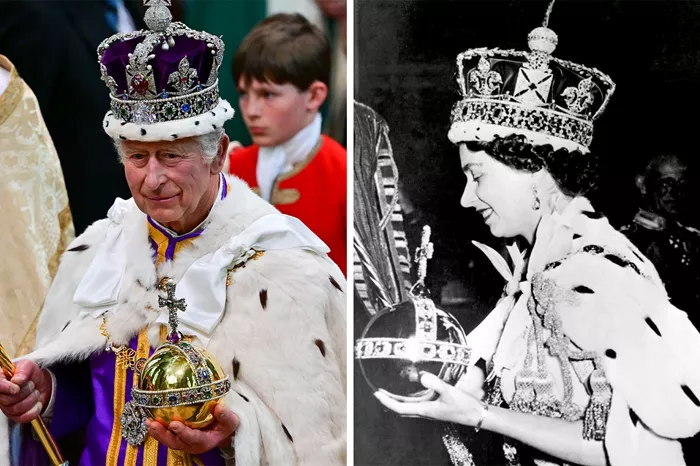June 13th holds significant historical importance in the annals of British history, as it marks the occurrence of various pivotal events that have shaped the nation’s trajectory over the centuries. From political upheavals and royal decrees to military campaigns and cultural milestones, this date serves as a window into the rich tapestry of British history. In this comprehensive article, we delve into the key events that have unfolded on June 13th throughout British history, offering insights into their contexts, impacts, and enduring legacies.
The Execution of Sir Thomas More (1535)
On June 13, 1535, Sir Thomas More, the former Lord Chancellor of England and a prominent statesman, was executed for treason by order of King Henry VIII. More had refused to acknowledge the king as the supreme head of the Church of England and to accept Henry’s divorce from Catherine of Aragon and subsequent marriage to Anne Boleyn.
More’s execution sent shockwaves throughout England and beyond, as he was widely admired for his intellect, integrity, and moral courage. His martyrdom solidified his reputation as a champion of religious freedom and a symbol of resistance against tyranny. More was later canonized as a saint by the Catholic Church, and his legacy continues to inspire generations of believers and defenders of conscience rights.
The Great Reform Act of 1832
On June 13th, 1832, the British Parliament passed the Great Reform Act, also known as the Reform Act of 1832, a landmark piece of legislation that initiated significant electoral reforms in the United Kingdom. The Act aimed to address widespread corruption, inequalities, and anomalies in the electoral system, particularly the issue of “rotten boroughs” – constituencies with very few voters but significant representation in Parliament.
The Great Reform Act expanded the electorate by increasing the number of eligible voters and redistributing parliamentary seats to reflect changes in population and economic activity. While the Act fell short of universal suffrage and maintained property qualifications for voting, it marked a significant step towards democratization and paved the way for further electoral reforms in the years to come.
See also: What Happened on May 13 in British History?
The First Women’s Rights Convention in London (1908)
On June 13, 1908, the First Women’s Rights Convention was held in London, marking a significant milestone in the struggle for gender equality in Britain. Organized by the Women’s Social and Political Union (WSPU), the convention brought together women from across the country to discuss issues such as suffrage, education, and employment rights.
The convention served as a platform for women to voice their concerns and demand greater political and social rights. It helped galvanize support for the suffrage movement and laid the groundwork for future campaigns for women’s rights in Britain. While progress towards gender equality has been slow and uneven, the First Women’s Rights Convention remains a landmark event in the history of the women’s movement in Britain.
The Signing of the Treaty of Versailles (1919)
On June 13th, 1919, the Treaty of Versailles was signed, officially ending World War I and imposing harsh terms on Germany. The treaty, negotiated among the Allied Powers – including Britain, France, the United States, and Italy – and Germany, sought to address the causes and consequences of the war and establish a framework for peace and stability in Europe.
The Treaty of Versailles imposed significant territorial, military, and financial penalties on Germany, including the loss of territory, demilitarization, and reparations payments. While the treaty aimed to prevent future conflicts and promote international cooperation, its punitive terms and perceived injustices contributed to the rise of resentment and instability in Germany, paving the way for the rise of Adolf Hitler and the outbreak of World War II.
The Coronation of Queen Elizabeth II (1953)
On June 13th, 1953, Queen Elizabeth II was crowned as the monarch of the United Kingdom and the other Commonwealth realms in a spectacular coronation ceremony held at Westminster Abbey in London. The coronation marked the culmination of months of preparation and anticipation, as millions of people around the world tuned in to witness the historic event.
Queen Elizabeth II’s coronation ushered in a new era for the British monarchy, symbolizing continuity and tradition in the face of post-war challenges and social change. Her reign, which has spanned more than six decades, has seen significant developments in Britain and the Commonwealth, as well as changes in the role and perception of the monarchy in modern society.
Conclusion
June 13th stands as a significant date in British history, marked by a diverse array of events that have shaped the nation’s identity, politics, and culture. From the Battle of Culloden to the Great Reform Act, from the Treaty of Versailles to the coronation of Queen Elizabeth II, each event reflects the complexities and contradictions of British history and offers valuable insights into the forces that have shaped the nation. As we reflect on these events, may we gain a deeper understanding of Britain’s rich and diverse heritage and the enduring legacy of those who have contributed to its story.

